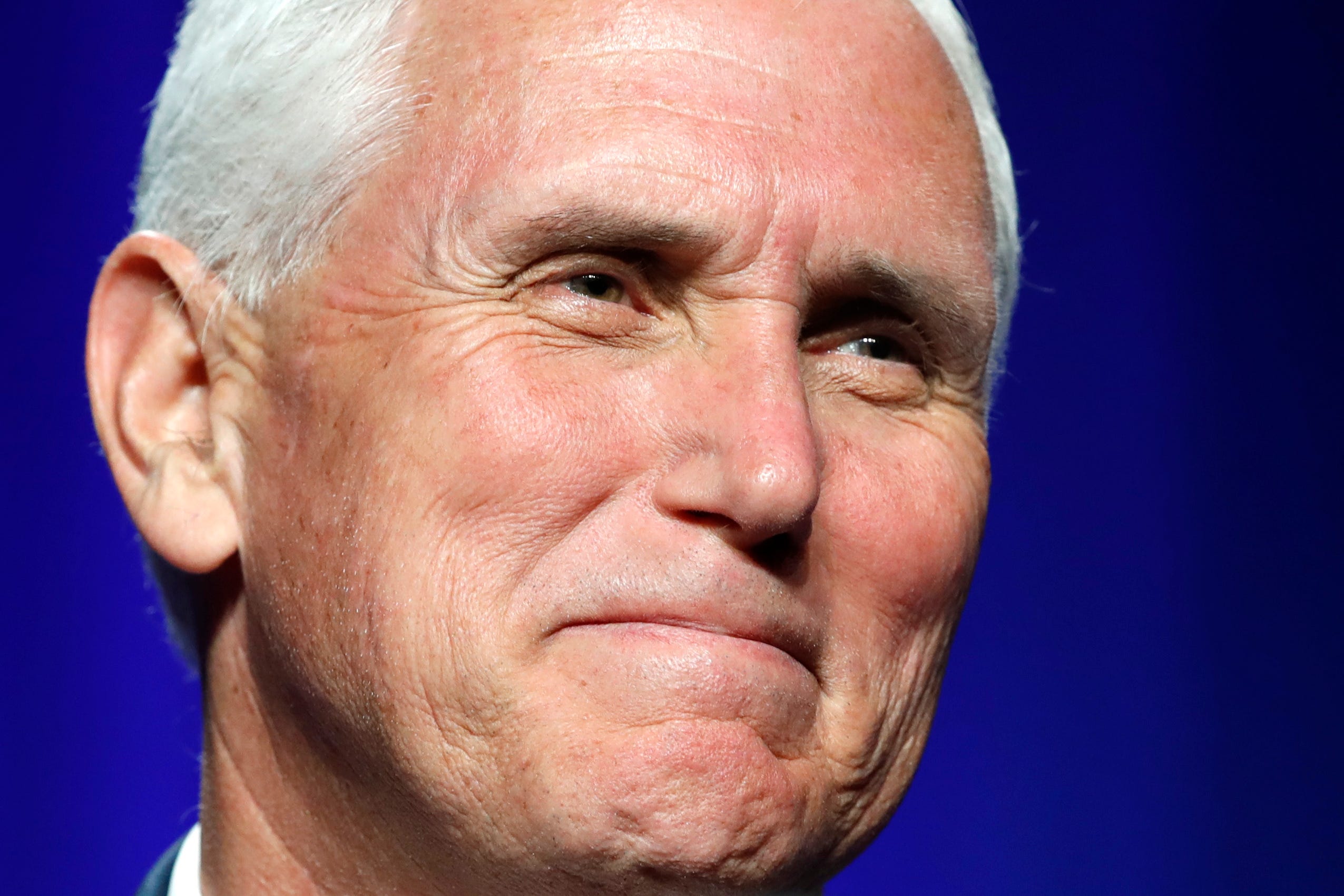WASHINGTON — Where is Mike Pence?
As Washington absorbed, dissected and speculated about a new tell-all book on the Trump administration, one main character has been missing from the dishy details about top aides and confidants at war with each other while deriding the intelligence of the commander in chief.
Vice President Pence runs a tight-knit operation, and his — and his aides’ — lips apparently remained sealed around author Michael Wolff.
“Little leaked out of the Pence side of the White House,” Wolff wrote in Fire and Fury: Inside the Trump White House.
Wolff calls Pence a “cipher, a smiling presence either resisting his own obvious power or unable to seize it.”
White House spokeswoman Sarah Sanders has called the book “complete fantasy and just full of tabloid gossip.”
Pence's spokeswoman said the vice president is focused on promoting the president's agenda.

"We are not focusing at all on a fictional book written by a gossip columnist masquerading as a journalist," press secretary Alyssa Farah said in a statement.
Pence’s relative absence from the book has been noted on social media.
An Indiana Republican who knows Pence has a positive view on why Pence is largely absent from the book.
“My takeaway from Wolff excerpts is what isn’t said: When everyone else in the West Wing is busy fighting amongst themselves, where is Mike Pence? He was busy stocking administration with Hoosiers and ideological allies, trying to ensure long term success of conservative policy,” tweeted Trevor Foughty, a former spokesman for the Indiana Republican Party.
What Wolff does include about Pence is likely to continue the debate over how he has been able to stay largely unscathed by the chaos and dysfunction in the White House, particularly in its early months. Is Pence canny enough to navigate the roiling waters, or is his profile low because he’s a non-entity?
Wolff offers this favorable assessment from Katie Walsh, a former deputy chief of staff to Trump, who “saw the vice president’s office as a point of calm in the storm.” Pence’s aides returned calls quickly, accomplished tasks easily, liked each other and were dedicated to eliminating as much friction as possible around the vice president, according to the book.
Pence himself, Wolff wrote, used “extreme self-effacement” to solve “the riddle of how to serve as the junior partner to a president who could not tolerate any kind of comparisons.”
“Pence,” Walsh is quoted as saying, “is not dumb.” (Walsh has said she did not make statements in the book attributed to her.)
While Pence’s stay-in-the-shadows approach may work with Trump, his “extreme submissiveness struck some as suspicious,” Wolff wrote in a section on how the Ivanka Trump and Jared Kushner faction in the White House viewed Pence.
Those allied with former chief of staff Reince Priebus liked that Pence was one of the few West Wing figures who treated Priebus as if he actually was chief of staff. Yet, Wolff adds this dig from that side: “Pence often seemed like a mere staffer, the ever present note taker in so many meetings.”
And the third competing faction in the early White House — Steve Bannon, the chief strategist who the White House says gave Wolff access to the administration — had only contempt for Pence, according to the book.
“Pence is like the husband in Ozzie and Harriet, a nonevent,” the book quotes "one Bannonite" saying.
After Bannon observed a “hapless Pence,” in a lot of “wrong meetings” regarding the Russia investigation, he helped to bring Nick Ayers in as Pence’s chief of staff and get Pence — “our fallback guy” — out around the world to look like a vice president.
“Although many saw him as a vice president who might well assume the presidency someday, he was also perceived as the weakest vice president in decades,” Wolff wrote, ”and, in organizational terms, an empty suit who was useless in the daily effort to help restrain the president and stabilize the West Wing.”
A note: Wolff himself said that the details in the book "are in conflict with one another" and that many are "baldly untrue." In some cases, he said the reader would be allowed to judge the versions told to him. For other details, he "settled on a version of events I believe to be true."

